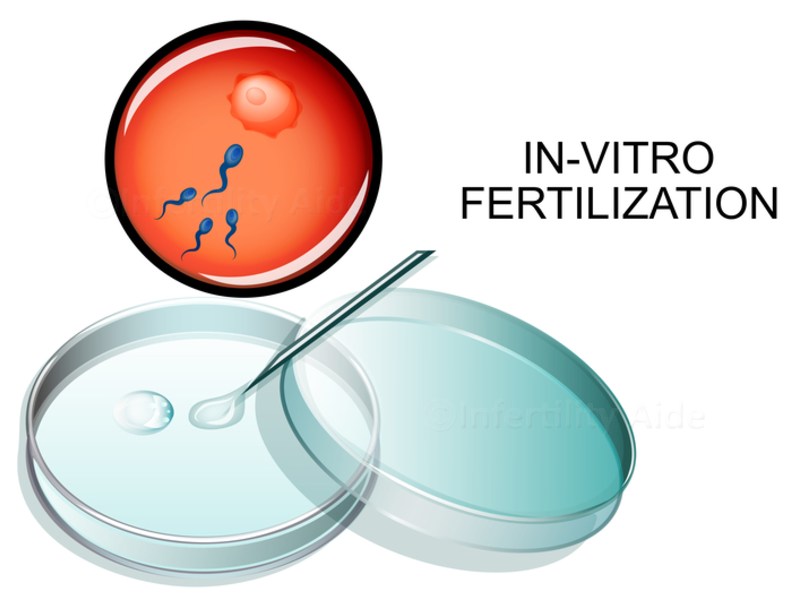Last week’s article on Grey areas in medical practice where policies are not clearly defined prompted a lot of emails from my colleagues; the most interesting of which was in regard to assisted reproductive technology in Nigeria.
For long, I have shied away from writing about infertility for fear of appearing insensitive. There is no word in the English language that can adequately describe the anguish and desperation of a couple in search of a child. This emotion, that is a cocktail of raw unfiltered pain, despair, vulnerability and hopelessness has for long been exploited by healthcare practitioners, pastors, Imams, marabouts and amebo family members that find it hard to mind their business. And so, most of us who have been lucky to have children can only imagine the myriad of emotions that couples with infertility go through.
- Terror on education: Untold story of out-of-school children in North Central
- Djokovic to lose world No 1 ranking
However, the fear of insensitivity should not deter us from addressing some illicit practices going on in the name of assisted reproduction in Nigeria. I say ‘illicit’ because the laws describing assisted reproduction are sadly lacking and can be described as largely ambiguous to say the least.
A little background information: Assisted Reproductive Technology (ART) includes medical procedures used primarily to address infertility. This subject involves procedures such as in vitro fertilization (IVF), intracytoplasmic sperm injection (ICSI), cryopreservation of gametes or embryos, and/or the use of fertility medication. The commonest assisted reproductive technique known to Nigerians is IVF. During IVF, mature eggs are collected (retrieved) from ovaries and fertilized by sperm in a lab. Then the fertilized egg (embryo) or eggs (embryos) are transferred to a uterus. IVF is the most effective form of assisted reproductive technology. The procedure is usually done using a couple’s own eggs and sperm, or it may involve eggs, sperm or embryos from a known or anonymous donor. Because the rate of miscarriage is high, more than one embryo is transferred to the uterus, which sometimes results in multiple pregnancies.
The first issue to be addressed is that of egg donation. Many women who go for IVF usually have depleted ovarian reserves. For some, that is the main cause of their infertility. And so, during the process of IVF, it is discovered that their eggs may not be suitable for the process. The couple may then opt for egg donation. That is where the problem arises. In the U.S., it is legal for a woman to donate eggs either anonymously or not. It is also legal to receive financial compensation for donating eggs. Egg donation clinics will require all donors to sign a contract that ensures they have no legal rights or responsibilities to any resulting children or embryos. To donate your eggs in the UK you have to be fit, healthy, aged between 18 and 35 years and have two normal ovaries. Egg donors must also have: No history of a transmittable disease. No personal family history of inheritable disorders. Additionally, the donation is done for purely altruistic purposes. Financial compensation is to cover for travel and medical expenses only.
However, in Nigeria that is not the case. As there is no law regarding egg donation, health practitioners have found a way to make it a money-making venture. Bear in mind that most IVF are done in private health facilities nationwide. What happens is young girls are lured into selling their eggs in return for juicy settlements. It is a common practice to scout for young girls, majorly students in tertiary institutions from poor backgrounds, during weekends only to take them to a lab, where they are given drugs to stimulate ovulation. Once their eggs are harvested, they are paid their money and they return to school. In some cases, the couple are aware that the eggs used for the IVF is bought, but in others, the couple are blissfully unaware, thinking only that they are using an ‘anonymous donor’.
There is no gain saying the fact that, this process is wrong and illegal. But when there is no law, what can we do? Who will report it? Is it the hospital doing the IVF purely for profit or is it the girls who have collected money in return for their ‘egg donation’? Or is the couple who are desperately in need of a child? The ills of this process are that the girls are selected purely at random. Whose eggs were you given? Do you know her health background? Do you know her genetic composition? Do you know her mental health record? Is she tall or short? The process is so random, that in reality, you know nothing about the child you may be carrying!
Another matter that needs to be addressed is the number of embryos that are transferred into the woman. In many cases, only one fertilized embryo is transferred to the uterus, while other doctors believe that two fertilized embryos increase the chances of a successful pregnancy. Here again, greed takes over sensibility. In order to have higher success rates, some centres have been known to implant four to five embryos into the uterus of a woman knowing fully well that it will be difficult to carry those babies to term. They do this to increase her chances of having multiple babies. The problem then arises when all those embryos mature and the doctor realises that the woman has four babies inside her which she may later lose during the course of her pregnancy.
It pains me to say this, but here is where it gets ugly. In a bid, to reduce the embryos, they embark on ‘fetal reduction’. Here, the doctor essentially plays God by selecting, at random, which baby lives and which doesn’t. The foetuses which were previously three, four or five in number are killed by injecting potassium chloride into their hearts thereby reducing their number to the amount desired by the mother and doctor. The woman then goes ahead to deliver one baby or two depending on what they wish.
These are not tales by moonlight. These are real life occurrences in medical practice.
As if that were not enough, couples nowadays seek out IVF not only for infertility purposes, but because assisted reproduction gives room for genetic testing. Let me explain. After fertilization, ideally, genetic testing is done to screen out certain diseases. For example, AS-AS couples seeking to have a child can employ this method so that they can be saved from having a child with sickle cell disease. The key idea being that the testing is done for medical purpose only. Here again, the system is abused such that during the testing, sex selection is done. Couples wishing to have a boy have been known to abort female foetuses in their quest for a male child. This clearly is in contradiction of what genetic screening is used for. This process of sex selection is unethical and has been banned in many countries.
A Bill for the regulation of In-Vitro Fertilization (IVF) has scaled second reading in the Senate (SB 127). The Bill seeks to prohibit certain practices in connection with IVF, establish an IVF Authority, regulate the IVF process and make provisions in relations to children born through IVF. The Bill, if passed, would create an authority that would 1) Regulate the process and develop standards and guidelines on IVF 2) Undertake research, conduct, control and treat IVF related issues 3) Be empowered to grant, suspend and revoke licenses of health practitioners specialized in IVF 4) Provide advice and information to persons receiving IVF treatment including persons providing gametes or embryos; and 5) Prescribe the minimum requirements for infrastructure of IVF fertilization centers and clinics.
This bill passed its second hearing in 2018. It is 2022 and I am yet to hear any policy. Or is there anyone with a more current information?
This article is not to condemn IVF; neither is to witch-hunt fertility centres. Indeed, assisted reproduction has brought much relief to couples, along with joy and fulfilled promises. The ability to have children via ART is one of the wonders of science. Yet, it needs to be regulated.
It’s time this bill is passed into law.

 Join Daily Trust WhatsApp Community For Quick Access To News and Happenings Around You.
Join Daily Trust WhatsApp Community For Quick Access To News and Happenings Around You.


